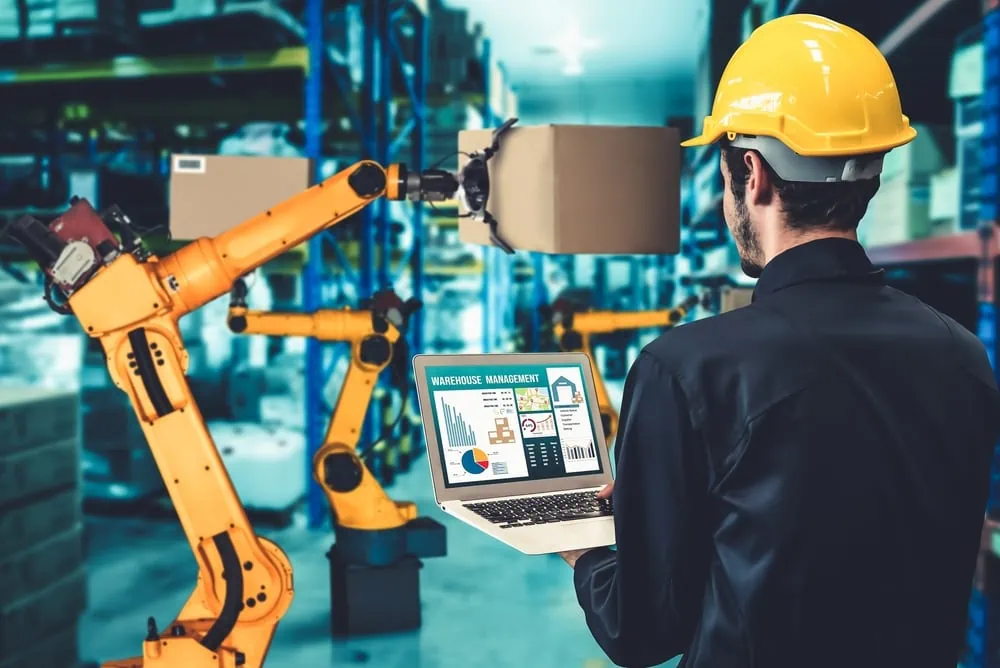The rise of AI is a force so transformative that it might finally make goods and services abundant and accessible to all – isn’t now the time for China and the UK to join forces to change their societies for the better, argues Andy Mok, a senior research fellow at the Centre for China and Globalisation
The rise and rise of artificial intelligence doesn’t just have technological implications; it is also giving new impetus to age-old dreams of societal equity and abundance. China’s technological might and the UK’s innovative spirit are converging in many areas of technology, promising a future that gives life to the ideas of visionary thinkers and the aspirations of modern leaders. With the right combination of technology and international collaboration, AI could present a comprehensive blueprint for a world free of want and labour exploitation.
The digital revolution: Could AI realise Marx’s dream?
In the annals of history, few thinkers have envisioned a societal transformation as profound as Karl Marx. His dream of a world where the proletariat reigned supreme, free from the chains of capitalist exploitation, has attracted many thinkers over the years. Yet, for all its philosophical allure, the practical realisation of Marx’s utopia has remained elusive. But some think that the rise of AI could be a force so transformative that it might just be the missing piece in Marx’s grand puzzle.
At its core, Marxism revolves around the collective ownership of the means of production. In Marx’s time, this referred to factories, land and machinery. Fast forward to today, and the means of production have evolved. In the digital age, robotics and AI algorithms are rapidly becoming the backbone of global industries. These AI systems, with their unparalleled efficiency and scalability, represent the modern means of production. Their potential impact on labour and capital is revolutionary, pushing us closer to a world where goods and services are abundant and accessible to all.
China’s push for AI dominance
China’s ascent as a technological superpower has been both rapid and deliberate. The country has leveraged its centralised governance model to strategically position itself at the forefront of the AI revolution. Integrating AI into the “In recent years China’s middle class has gone from wanting the cheapest products, to the best value, to something much more sophisticated – here’s what you need to know about China’s current consumer landscape Prosperity” campaign could help President Xi Jinping to accelerate its realisation.
China’s approach to AI offers a glimpse into the future of governance, technology and society. By controlling the AI-driven means of production, the Chinese state can, in theory, ensure that the benefits of this technological revolution are more equitably distributed among its vast populace.
Equitable wealth in the age of AI
The transformative power of AI lies in its potential to redefine the economics of production. When labour costs trend towards zero, the traditional barriers to producing goods and services are reduced, which could lead to an era of endless abundance. But abundance doesn’t automatically translate to equitable distribution. As a result, the mechanisms through which this wealth is shared become paramount.
If a state, representing the collective interests of its citizens, controls the AI-driven means of production, it is in a unique position to distribute the generated wealth. In this AI-driven landscape, the state becomes the guarantor of the principle of “from each according to his ability, to each according to his needs”, ensuring that the benefits of AI-driven production cascade down to every stratum of society.
Yet, for a vision like this to transcend borders and resonate globally, international collaboration is essential. And here lies the golden opportunity for the UK. As two nations with rich histories and global influence, China and the UK are poised to lead the AI charge. By combining their strengths, they can not only navigate the challenges of the AI era but also lay the foundation for a future characterised by prosperity, equity and shared values.
Economic opportunities for the UK
In the global AI arena, the UK stands as a beacon of innovation and enterprise. Collaborating with China offers a plethora of economic opportunities. Companies like DeepMind, headquartered in London, have already showcased the UK’s prowess in AI research. The fintech sector, with innovators like Revolut and Monzo, can benefit immensely from partnerships that leverage China’s market opportunities and technological resources. The Wellcome Trust, known for its contributions to healthcare research, can partner with Chinese institutions to revolutionise medical diagnostics and patient care. Furthermore, traditional manufacturing giants, such as Rolls-Royce, can undergo a renaissance by integrating AI-driven processes developed in collaboration with Chinese counterparts.
The UK’s global leadership in ethics and regulation
The UK has always been at the forefront of ethical considerations and regulatory frameworks. Figures such as Lord Chris Holmes, who has been vocal about the ethical implications of emerging technologies, can play a pivotal role in shaping the UK’s stance on AI ethics. Collaborative efforts between institutions like the Alan Turing Institute in the UK and their Chinese counterparts can help set global standards, ensuring AI’s responsible development.
Talent development and brain gain
The fusion of British innovation and Chinese technology could also become a magnet for global talent. Universities like Oxford and Cambridge, known for their research excellence, can establish academic collaborations with Chinese institutions. This synergy can make the UK-China AI corridor a hotspot for global talent, further solidified by initiatives from tech incubators like Tech Nation.
Legacy and vision for the future
For British senior executives and politicians, such collaborations are more than just a technological venture. Decisions made today can shape the UK’s tomorrow, ensuring prosperity, innovation, and global leadership for generations to come.
In conclusion, Sino-British collaboration in the AI realm offers more than just technological dividends; it presents a vision of a shared future. A future where technology, ethics and humanity converge, crafting a world that resonates with the aspirations of both nations and stands as a testament to the power of collaborative endeavour.




